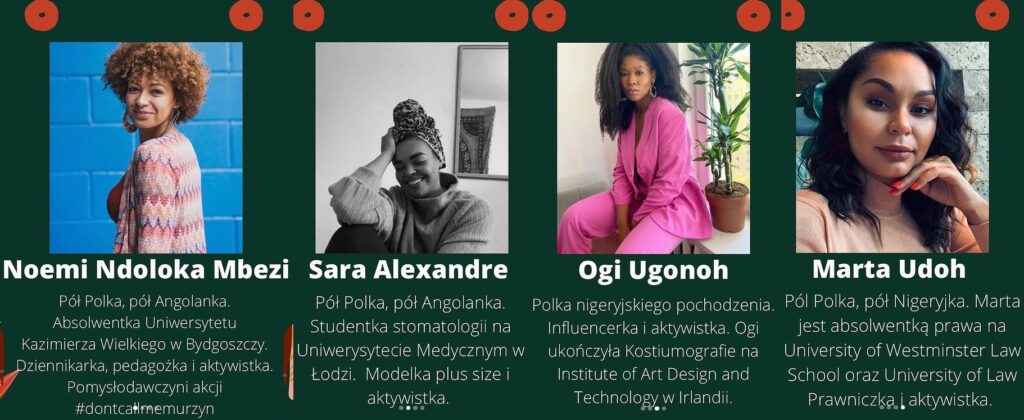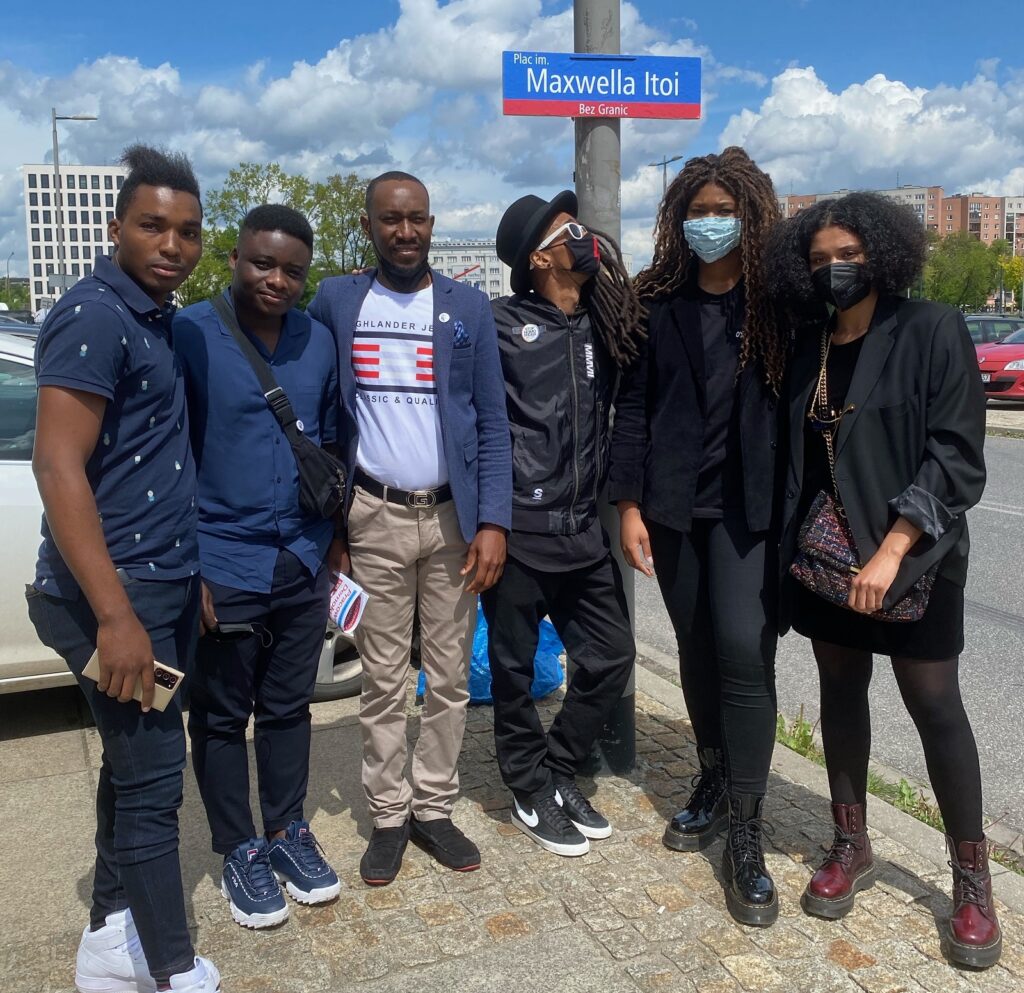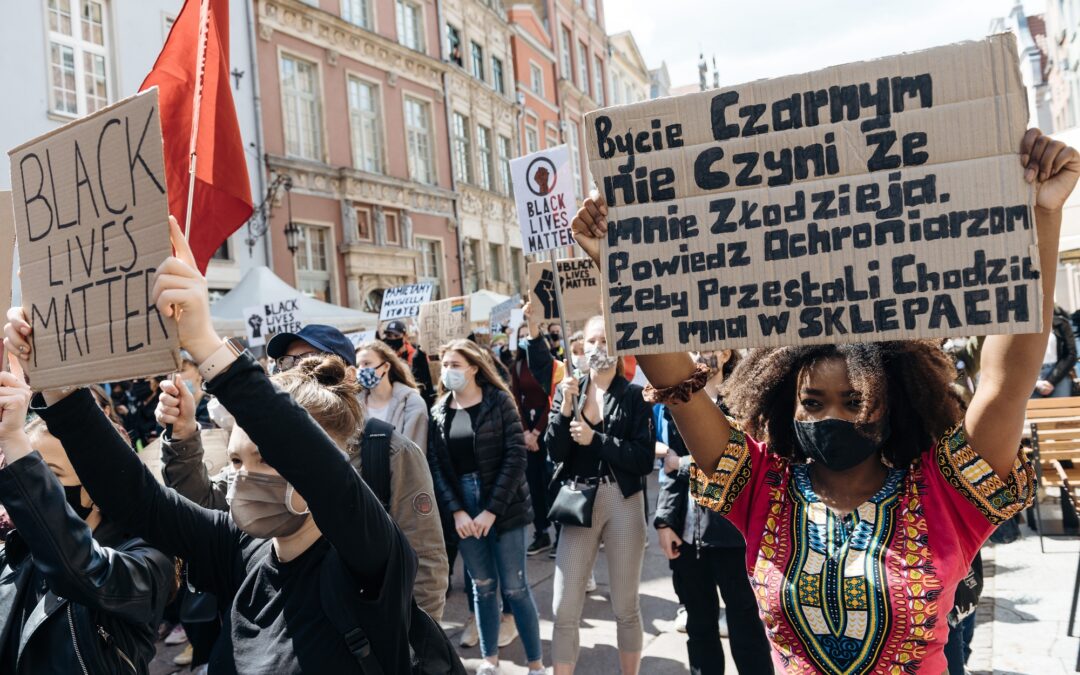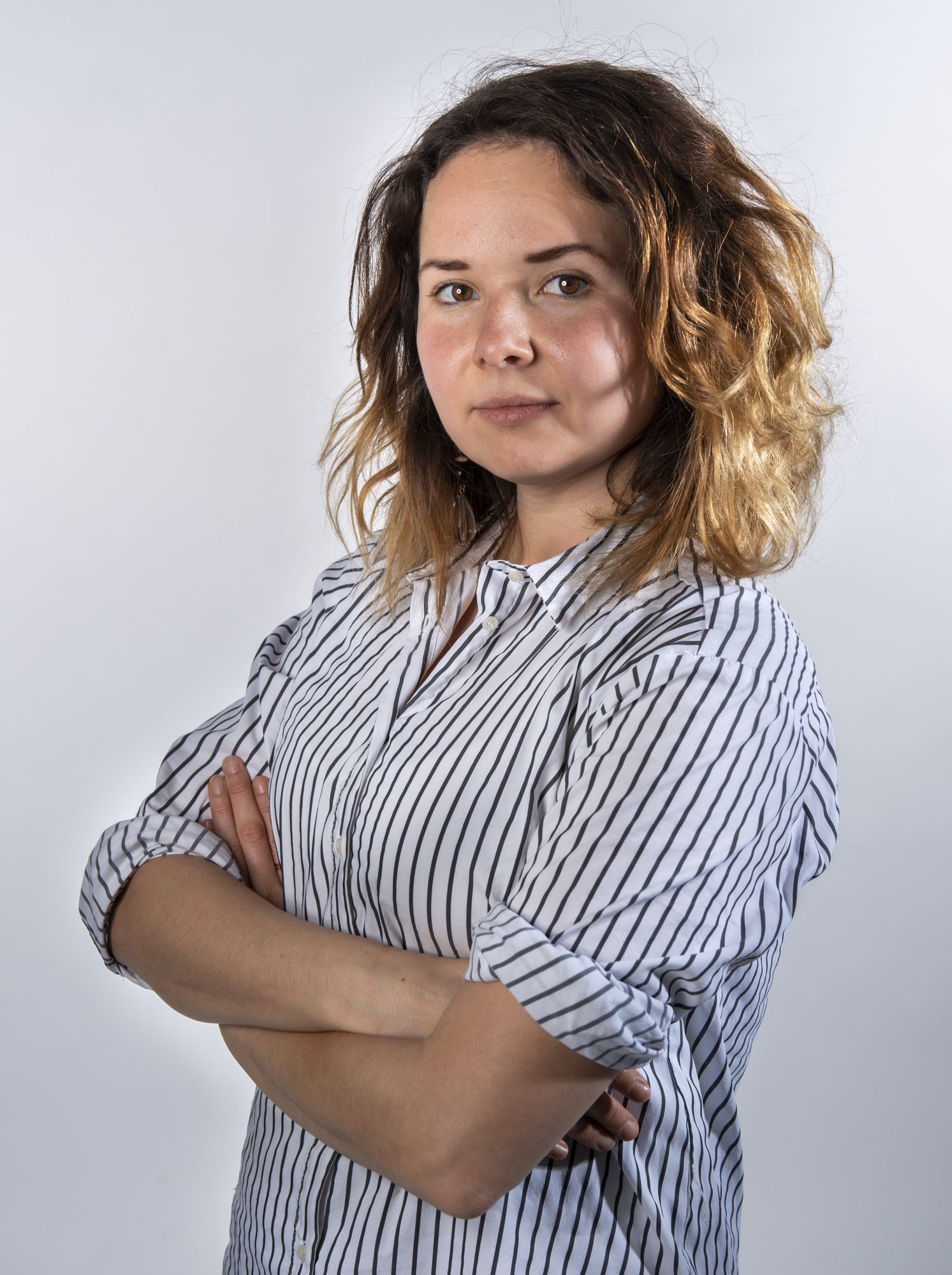By Zula Rabikowska
A year ago, an image of a black Polish girl protesting at a Black Lives Matter demonstration in Warsaw helped to rekindle a long-running debate about language, racial identity and stereotypes in Poland. “Stop calling me Murzyn”, read her placard, referring to a Polish term for a black person that many say has come to hold pejorative meaning.
The Council for the Polish Language agreed with them in a recent declaration, saying that the word “Murzyn” “should be avoided in the media, official administration and at schools,” as it is no longer neutral, but “burdened with negative connotations”.
The #dontcallmemurzyn campaign, set up to fight against racial discrimination in the aftermath of the controversy, received domestic and international attention. To continue and broaden the movement’s work, its creators have now set up an educational platform called “Black is Polish”.
They say they hope to make racism a topic people understand and care about, to fight against what they see as deeply entrenched racism and inequality, and to bring about a long-needed transformation of Polish society.
We recently asked linguists, members of Poland's black community and others for their opinion on the word "Murzyn" – and they mostly also came to the conclusion that it should no longer be used https://t.co/ehcioqcyLf
— Notes from Poland 🇵🇱 (@notesfrompoland) August 12, 2020
“After the murder of George Floyd in 2020, people started protesting all over the world, and we all felt like we had to do something,” explain the founders of the platform, Noemi Ndoloka Mbezi, Sara Alexandre, Ogi Ugonoh and Marta Udoh. “Talking about racism in Poland can be tough. People differ in their understanding of the topic. Some don’t see racism and therefore claim it doesn’t even exist.”
The four women have contrasting backgrounds, with the common denominator of being black and Polish. Ndoloka Mbezi is an educationist and journalist who studied in Bydgoszcz and is now based in London. Alexandre works as a model in Hamburg and is also completing her studies in dentistry in Łódź.
Ugonoh is an activist and educator who was born in Poland to Nigerian parents and lived in Ireland for 16 years, before recently moving back to Poland to be with her family. Udoh was born and raised near Wrocław to Polish and Nigerian parents. When she was 13, she and her family moved to the United Kingdom, where she still lives and works today.

The creators of the Black is Polish platform (photo: Black is Polish/Instagram)
The women say of the international character of their backgrounds and work that “we are probably a good representation of Polish immigrants. Some are totally integrated abroad, but a lot came back during the pandemic.”
As part of the initial #dontcallmemurzyn campaign, they organised online discussion panels so that people could hear Afro-Polish voices. In a film shared on YouTube, the women and another young black Pole, Aleksandra Dengo, discuss their experiences of the word “Murzyn” and their experiences more generally.
As well as substantial positive support for the campaign, they also encountered individuals responding by making their own videos explaining why the use of this word is not offensive. This pushback encouraged them to take further action. “That was one of the main things that fuelled us. We were tired of people talking over us. Explaining away painful and traumatic experiences.”
Ndoloka Mbezi, Alexandre, Ugonoh and Udoh say that the energy, media attention and changes they felt the campaign was starting to bring about inspired them to create Black is Polish.
“Our message was reaching more people,” they tell Notes from Poland. “It also tested people in our lives. Some people couldn’t handle us talking about racism.”
“We wanted the name to reflect our message. We want to see real change in Poland. Removing the word from public discourse allows black Polish people to self-identify,” they say.
Black is Polish launched several weeks ago on Instagram, which its founders see as the perfect platform often used for activism and inspiring social change.
“The mix of audio, visual and written makes it a great tool for expression and explanation. In the short term, we create content explaining racial problems and nuances. It’s important to have such content in the Polish language in the context of Poland. People here still deny the existence of racism. We also like the idea of having everything in one place”.

One of the posts on the platform (photo: Black is Polish/Instagram)
Some of the posts on the page come from the often shocking personal experiences of racism of black people living in Poland.
I was walking down the street with a friend, both of us are Polish so we were talking to one another in Polish. There was a guy on a bike who went past us who started shouting in our direction “Let me record you! Nobody is going to believe me that a murzyn can speak Polish”.
I was riding the metro, and a random woman came up to me and spat at my legs, told me to go back to Africa and pick cotton.
My mum frequently told me that I was lucky to be so fair-skinned, unlike my dad. My mum said that black women are not attractive.
When a woman in a shop saw my son in the pram, she asked me if there were not enough Polish men left, and why did I have to go copulate with a monkey.
Other posts aim to educate a Polish-speaking audience about racism, prejudice, and issues such as colonialism (often with subtitles and explanations in English) but also highlight to a wider population that Poland is more complex and diverse than often depicted in the media.
They say they hope to encourage their followers to self-educate, rethink and check their conscious or subconscious bias, which often manifests in a variety of ways.
The founders say they get many questions about “how to be a good ally in the fight against racism” and have created a series of posts with simple advice. The posts encourage everyone to understand that racism is everywhere, step outside our own beliefs and experiences, ask questions, learn the effects that racism has on people, continue to learn and self-educate and listen to the experiences of those who have experienced racism.
They hope in future to be able to grow their audience and hold live conversations with anti-racist educators. So far, they say, the reception of the page has been as expected, with a mixture of reactions:
There are some people who disagree, and try to disprove the information we’re sharing, without any solid evidence of their own. We have all gotten pretty good at differentiating people who are generally curious and those who believe racism is a made-up leftist ideology. There are also people who are generally stunned and very interested. There are not many profiles like this in Poland. There is still quite a bit of ignorance when it comes to racial problems.

Ogi Ugonoh (second right) at a commemoration of the death of Maxwell Itoya, a Nigerian immigrant shot in a police raid in 2010
They mention certain important figureheads in the black community in Poland. Mamadou Diouf, a Polish musician and writer of Senegalese descent, is one. Another is Margaret Amaka Ohia Nowak, a teacher of the Polish language and culture educator, while the Association of Polish People of African Descent is also active.
In the long term, the Black is Polish team also want to educate schools and businesses and continue to implement change at grassroots level. They aim to “make factual education about race possible in schools”, “change the way people see difference in Poland,” and “make black people here feel safer and more welcome”.
They are planning to use other tools outside Instagram to reach a wider audience and make Black is Polish a voice that is heard and reflected in societal debates.
“We work with other black-led organisations in Poland to tackle racism at its systemic root. We have already started providing diversity and inclusivity training for businesses and several of us educate children and teachers in schools. In the future we see ourselves collaborating with international organisations. Festivals, workshops and creative projects are also in the works”.
The team are also planning an event to celebrate black Polish people and provide a space “to get closer to the African culture and diaspora. Everyone will be welcome of course”, as well as hosting more panel discussions and setting up a website with a dedicated newsletter, helpful information and links to other events and organisations.
“We want to reach and educate more people and create tools for schools, businesses and other public sectors. Systemic racism also exists here so we need to come up with solutions for such issues. We are growing and changing with the platform. A lot will probably change. For now, our voices and visibility are crucial.”
Main image credit: Bartosz Bańka/Agencja Gazeta





















